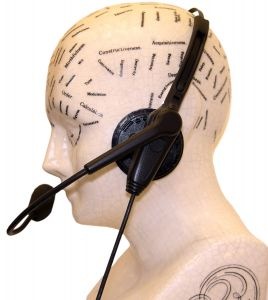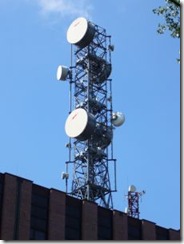A common scenario is when someone takes home a notebook from work. The intention is to do work from home for whatever reason.
 This could be a serious security risk. Most companies have gone to a lot of trouble to secure their office networks (for example by installing and managing firewalls; though a firewall is not enough to secure a network). In fact some companies have an entire department dedicated to maintaining network security. However most homes don’t have managed firewalls or any of the other network security systems or resources that companies often use. This effectively makes a home network less secure.
This could be a serious security risk. Most companies have gone to a lot of trouble to secure their office networks (for example by installing and managing firewalls; though a firewall is not enough to secure a network). In fact some companies have an entire department dedicated to maintaining network security. However most homes don’t have managed firewalls or any of the other network security systems or resources that companies often use. This effectively makes a home network less secure.
The risk is having an outsider gain access to the contents of the notebook. This could be achieved in a number of ways including having a trojan on another PC in the house. The possible damage to businesses can be huge, depending on the importance of the data on the notebook, or the importance of the work being done from home.
Some misconceptions need to be explained:
- All firewalls are the same – this is not true. There are different types of firewalls making some more secure than others. They also need to be patched when the vendor discovers a vulnerability. Some home routers even claim to have firewalls when they don’t (they claim that a NAT feature is effectively a firewall – it isn’t). SPI firewalls are good (Stateful Packet Inspection)
- No one would be interested in hacking into your home network. The internet doesn’t discriminate, every device connected to the internet is at as much risk as every other device
It’s not all bad news though. There are things you can do to protect yourself and your employer.
- The laptop should have an antivirus program installed. It needs to be up to date.
- The laptop would ideally have a “personal firewall” installed. Windows Firewall is not good enough. You need something that not only stops other programs getting into the notebook, it needs to stop unknown programs already on the notebook from getting out to the internet.
- The home router should have its own firewall, or you could use a dedicated firewall device. Ideally the firewall would filter out traffic coming from or going to known sources of malware but this isn’t going to happen at home, it requires a fair bit of maintenance (i.e. it’s expensive)
- Encrypt the hard drive in the notebook. This can protect you if you lose the notebook or it gets stolen (and statistics show this happens often). Whole disk encryption costs money and slows down the notebook a bit but it’s very important.
- Don’t carry all your files on the notebook. Don’t keep all your emails, or your entire client list, etc. Only copy the data you need to get the job done and limit the risk.
- A VPN to your office network can help.
- Don’t connect your notebook to the internet. These days almost everyone needs the internet to do work so this idea might not be very practical
- Don’t use someone else’s wireless network. Not only is this illegal in many countries, you would be sending all your data through a stranger’s network. It’s technically possible for someone to intercept that data, even to manipulate it.
- If you use wireless at all make sure it uses a strong security protocol (WPA or WPA2)
A note about VPNs:
VPN stands for Virtual Private Network. It’s a piece of technology that can be used to join an office network to a home network. Servers and PCs on the networks would behave as if they were sitting in the same location, ignoring the fact there’s some distance inbetween, and ignoring the fact it’s really travelling across the Internet.
A VPN isn’t the be all and end all of security, it’s only a technical solution to a technical problem. You still need firewalls, virus scanners, and a little bit of tech support.
They can be setup to route all traffic to your office network and then you would trust your office network to filter the traffic for you. This is generally good. There are some caveats:
- Activities like internet browsing are slowed down
- Your office network may keep a log of what websites you view from home, when you’re connected to the VPN
- You’re trusting your office’s IT staff not to hack into your home network (it’s technically easier when you establish a VPN)
- It costs your employer money to setup and manage a VPN
- If you have an unreliable internet connection at home it’ll disrupt your work.
Above all find out what your company’s IT policies are and follow them as best you can. If they don’t have one then now’s a good time to suggest one. Working from home doesn’t have to be risky.
 That should cover pretty much everyone using Windows at home and at work, and both servers and PCs.
That should cover pretty much everyone using Windows at home and at work, and both servers and PCs.
 Then when the internet came along criminals starting tricking people into handing over personal details, or they employ hackers to write spyware that achieves the same result.
Then when the internet came along criminals starting tricking people into handing over personal details, or they employ hackers to write spyware that achieves the same result.
 The police were able to find him and arrest him. It’s important to secure your wireless networks so that other people don’t use it to commit crimes.
The police were able to find him and arrest him. It’s important to secure your wireless networks so that other people don’t use it to commit crimes. It’s amazing how many new tactics these people come up with in order to steal your personal information. There’s a new “bot” that chats with users on Russian online chat rooms (a bot is a program that mimics a real person online). It’s called CyberLover and apparently it’s quite clever in impersonating a human and gets people talking to it.
It’s amazing how many new tactics these people come up with in order to steal your personal information. There’s a new “bot” that chats with users on Russian online chat rooms (a bot is a program that mimics a real person online). It’s called CyberLover and apparently it’s quite clever in impersonating a human and gets people talking to it. This could be a serious security risk. Most companies have gone to a lot of trouble to secure their office networks (for example by installing and managing firewalls; though a firewall is not enough to secure a network). In fact some companies have an entire department dedicated to maintaining network security. However most homes don’t have managed firewalls or any of the other network security systems or resources that companies often use. This effectively makes a home network less secure.
This could be a serious security risk. Most companies have gone to a lot of trouble to secure their office networks (for example by installing and managing firewalls; though a firewall is not enough to secure a network). In fact some companies have an entire department dedicated to maintaining network security. However most homes don’t have managed firewalls or any of the other network security systems or resources that companies often use. This effectively makes a home network less secure.